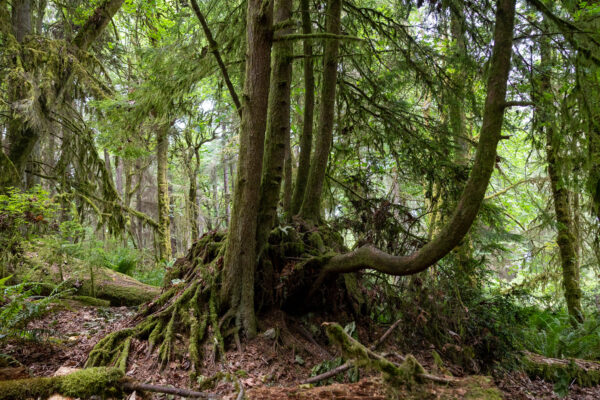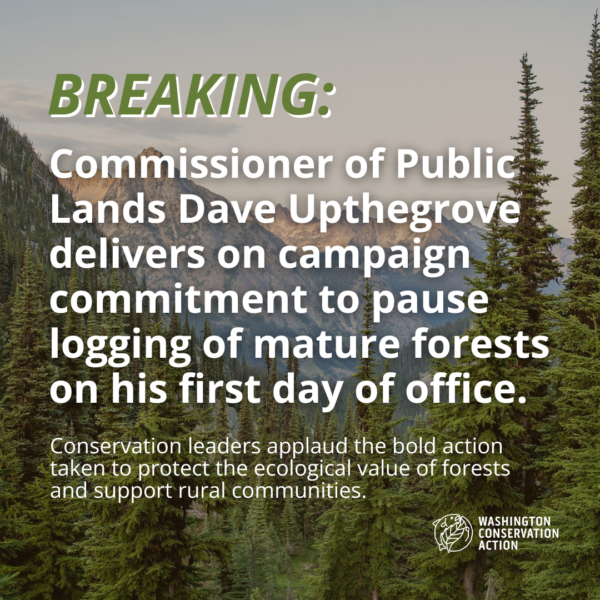The new Commissioner of Public Lands Dave Upthegrove just started his first day leading the Department of Natural Resources and is already delivering on his campaign promises!
Today, Commissioner Upthegrove announced a 6-month pause on the timber sales of certain mature forests, those that are structurally complex with diverse species growing below the canopy and that have small, natural gaps caused by disturbances like wind. These forests are close to being fully mature. They enhance biodiversity. They store carbon. They are vital to our habitats and our communities and our economy.
After four years of controversy, and last-minute sales of mature tracts by the previous commissioner, Commissioner Upthegrove has signaled that we need to be thoughtful about the fate of these landscapes that are the symbol and the economic backbone of our state.
WCA is excited to support the new commissioner, and to continue to work on win-win solutions that protect people and nature as one, while supporting rural communities.
“Commissioner Upthegrove is taking immediate action to resolve a persistent, intractable issue,” says Rachel Baker, WCA’s forest director. “He’s making sure the action is science based and well planned. This allows DNR to strike the right balance between public values and timber harvest, and between meeting commitments to agency policy and climate change, and commitments to communities.”
During his campaign, Upthegrove told voters in an interview with WCA, “We can end the destruction of our mature forests while still supporting rural economies, creating jobs and funding public services. I know it’s possible because I led similar changes in King County, establishing a forest carbon program and stopping the destruction of mature forests, including the proposed Wishbone sale.”
In a press statement, Upthegrove explained that the pause will give DNR time to better identify and map forests that meet “Maturation 2” criteria. Revenue will be delayed to some beneficiaries as a result, and DNR will work with the legislature to find alternate funding where appropriate.
DNR emphasized that this doesn’t mean that Washington will harvest less. This is a change in where the state harvests.
As Upthegrove told WCA last summer, “Simply cutting down more trees isn’t a long-term sustainable economic strategy for rural communities…we can change how we harvest and where we harvest.”
Your donation ensures a sustainable future.


